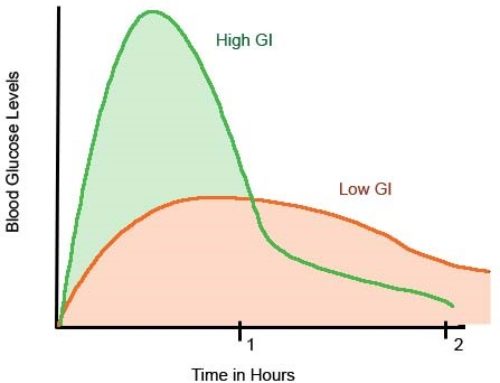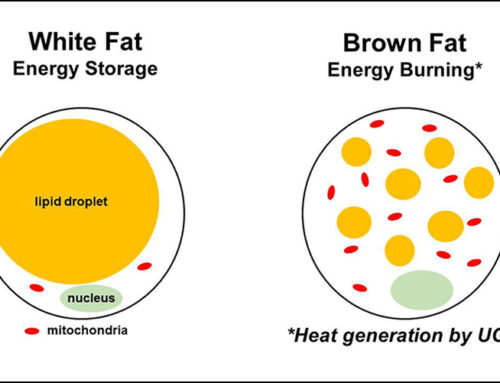
A new meta-analysis examines 40 years’ worth of research in an attempt to find out the ideal amount of fiber that we should consume to prevent chronic disease and premature mortality.
person eating cereals and fruit
Whole grain cereals and fruit are excellent sources of fiber.
Researchers and public health organizations have long hailed the benefits of eating fiber, but how much fiber should we consume, exactly?
This question has prompted the World Health Organization (WHO) to commission a new study. The results appear in the journal The Lancet.
The new research aimed to help develop new guidelines for dietary fiber consumption, as well as reveal which carbs protect the most against noncommunicable diseases and can stave off weight gain.
Noncommunicable diseases are also called chronic diseases. They typically last for a long time and progress slowly. According to WHO, there are “four main types of noncommunicable diseases:” cardiovascular diseases, cancer, chronic respiratory diseases, and diabetes.
Professor Jim Mann, of the University of Otago, in New Zealand, is the corresponding author of the study, and Andrew Reynolds, a postdoctoral research fellow at Otago’s Dunedin School of Medicine, is the first author of the paper.
Prof. Mann explains the motivation for the study, saying, “Previous reviews and meta-analyses have usually examined a single indicator of carbohydrate quality and a limited number of diseases, so it has not been possible to establish which foods to recommend for protecting against a range of conditions.”
To find out, the researchers performed a meta-analysis of observational studies and clinical trials.
Daily intake of 25–29 grams of fiber is ideal
Reynolds and colleagues examined the data included in 185 observational studies — amounting to 135 million person-years — and 58 clinical trials which recruited over 4,600 people in total. The studies analyzed took place over almost 40 years.
The scientists investigated the incidence of certain chronic diseases, as well as the rate of premature deaths resulting from them.
These conditions were: coronary heart disease, cardiovascular disease, stroke, type 2 diabetes, colon cancer, and a range of obesity-related cancers, such as breast cancer, endometrial cancer, esophageal cancer, and prostate cancer. Overall, the research found that people who consume the most fiber in their diet are 15–30 percent less likely to die prematurely from any cause or a cardiovascular condition, compared with those who eat the least fiber.
Consuming foods rich in fiber correlated with a 16–24 percent lower incidence of coronary heart disease, stroke, type 2 diabetes, and colon cancer.
Fiber-rich foods include whole grains, vegetables, fruit, and pulses, such as peas, beans, lentils, and chickpeas.
The analysis also revealed that the amount of fiber that people should consume daily to gain these health benefits is 25–29 grams (g). By comparison, adults in the United States consume 15 g of fiber daily, on average.
The authors also suggest that consuming more than 29 g of fiber per day may yield even more health benefits.
However, they do caution that, while the study in itself did not find any adverse health effects of consuming fiber, eating too much of it may be damaging for people with insufficient iron or minerals.
Eating large amounts of whole grains can further deplete the body of iron, explain the researchers.
Finally, the clinical trials included in the study also revealed that consuming more fiber correlates strongly with lower weight and lower cholesterol levels. Why fiber is so good for you
Prof. Mann comments on the significance of the findings, saying, “The health benefits of fiber are supported by over 100 years of research into its chemistry, physical properties, physiology, and effects on metabolism.”
“Fiber-rich whole foods that require chewing and retain much of their structure in the gut increase satiety and help weight control and can favorably influence lipid and glucose levels,” he adds.
“The breakdown of fiber in the large bowel by the resident bacteria has additional wide-ranging effects including protection from colorectal cancer.” Fiber is a key element of a healthful diet. New research breaks down the mechanism by which it can delay age-related brain inflammation.
Food rich in fiber
Fiber can be found in fruits, vegetables, nuts, seeds, beans, pulses, and whole-grain foods.
If all the studies that urge people to consume a diet rich in fruits, vegetables, and whole grains for a healthy life haven’t convinced you yet to add more broccoli to your plate, perhaps this latest research will.
Eating fiber-rich foods — such as broccoli, nuts, oats, beans, and whole-grain bread — might help delay brain aging by triggering the production of a short-chain fatty acid that has anti-inflammatory properties.
This the main takeaway of a new study that was recently published in the journal Frontiers in Immunology.
Rodney Johnson, a professor and the head of the Department of Animal Sciences at the University of Illinois at Urbana-Champaign, is the corresponding author of the study, and Stephanie M. Matt is the first author of the paper.
How fiber lowers inflammation
As Matt and colleagues explain in their study paper, microglia — a major type of immune cell in the brain — tend to become hyperactive and chronically inflamed with age. This inflammation of the microglia is one of the main causes of memory and cognitive decline in old age.
Previous research has shown that a drug form of butyrate, which is a short-chain fatty acid that is produced in the colon when bacteria ferment fiber in the gut, can improve memory and reduce inflammation in mice. However, the precise mechanisms behind this weren’t entirely understood. Also, previous research had not shown whether simply increasing the dietary content of fiber would achieve the same results as the drug.
So, Matt and colleagues fed young and aging mice diets high and low in fiber. Then, the scientists measured the mice’s blood levels of butyrate and their levels of pro-inflammatory substances in their intestines.
Prof. Johnson sums up these findings, saying, “The high-fiber diet elevated butyrate and other [short-chain fatty acids] in the blood both for young and old mice.”
But,” he goes on, “only the old mice showed intestinal inflammation on the low-fiber diet […] It’s interesting that young adults didn’t have that inflammatory response on the same diet. It clearly highlights the vulnerability of being old.”
Also, consuming a high-fiber diet reduced the intestinal inflammation in aging mice so much that it was indistinguishable from that of young mice.
“Dietary fiber can really manipulate the inflammatory environment in the gut,” says Prof. Johnson. What about the brain, however?
Why fiber is good for your brain
A genetic analysis of inflammatory markers conducted by the scientists found that a high-fiber diet reduced inflammation in the brain’s microglia. The researchers suspect that this was achieved by diminishing the production of a pro-inflammatory chemical known as interleukin-1β, which some studies have linked with Alzheimer’s.
Study co-author Jeff Woods, a professor in the Department of Kinesiology and Community Health at the University of Illinois at Urbana-Champaign, comments on the findings.
“We know that diet has a major influence on the composition and function of microbes in the gut and that diets high in fiber benefit good microbes,” he points out, “while diets high in fat and protein can have a negative influence on microbial composition and function.”
Altering gut microbes, explains Prof. Woods, “is one way in which [diet] affects disease.”
Prof. Johnson explains that the findings are relevant to humans, saying, “People are not likely to consume sodium butyrate directly, due to its noxious odor,” he says, but, “A practical way to get elevated butyrate is to consume a diet high in soluble fiber.”
Courtesy: Medicalnewstoday
If you are interested in Nutrition and how it helps people lead a better and healthier life and want to help people achieve that, The Certificate in Human Nutrition is the coruse for you to get started.




Leave A Comment